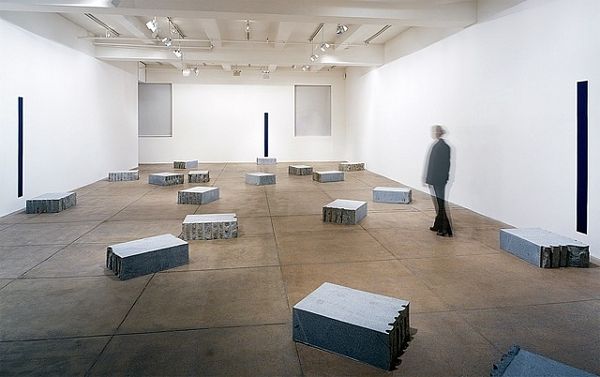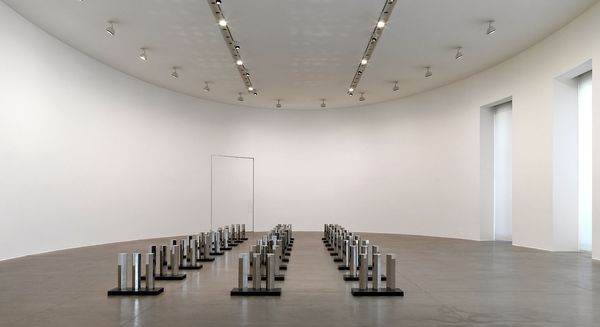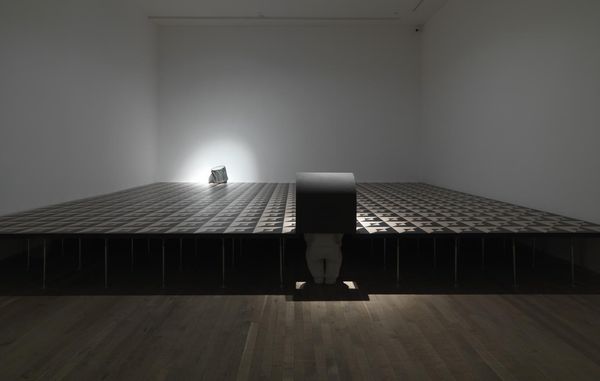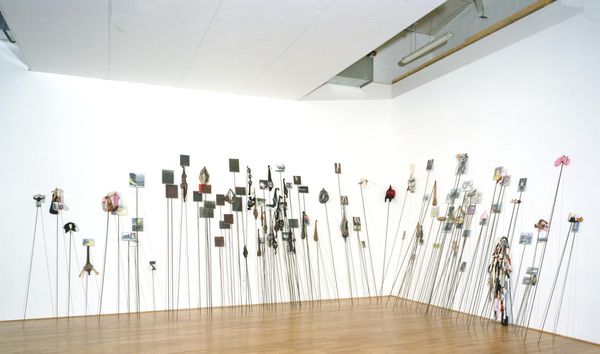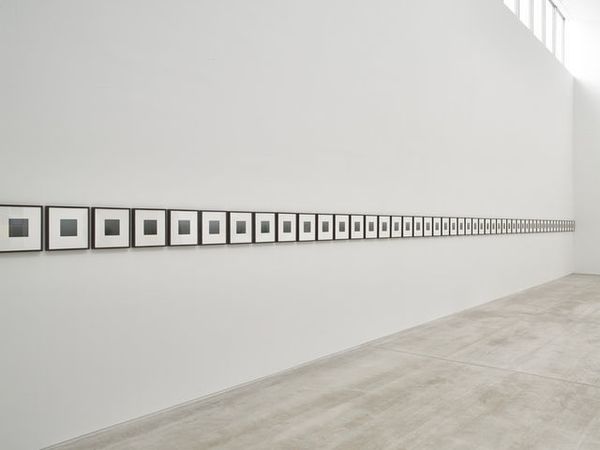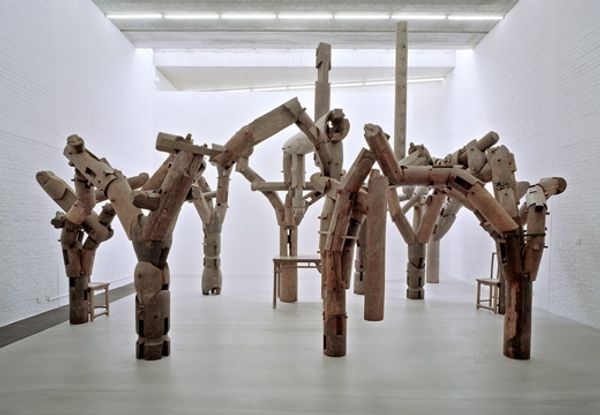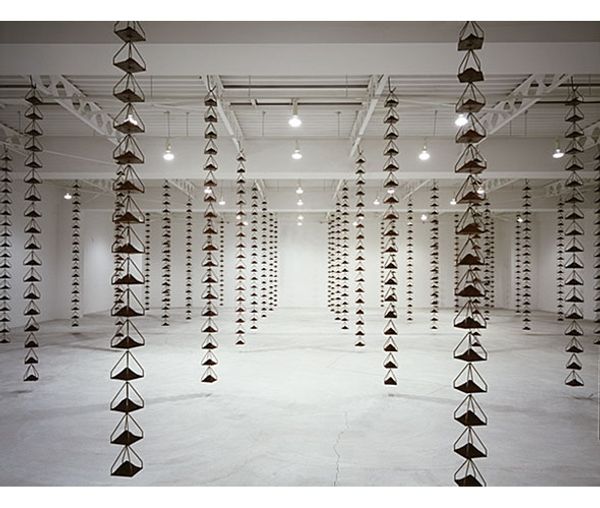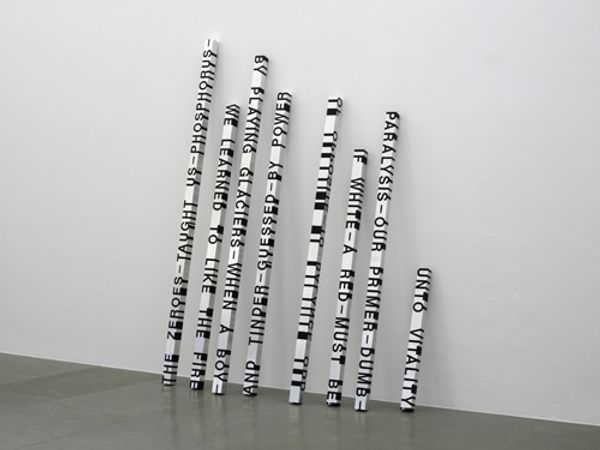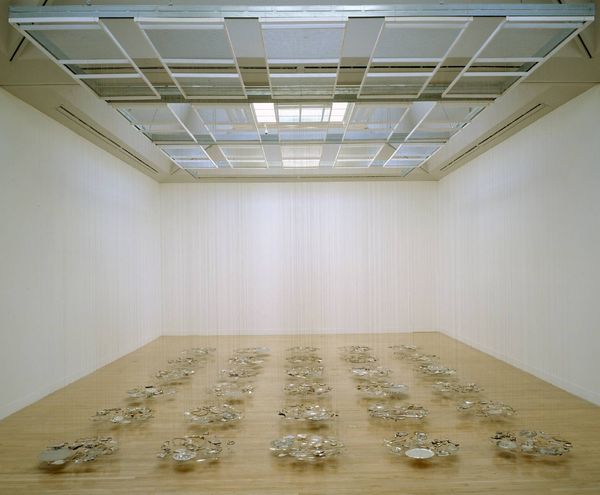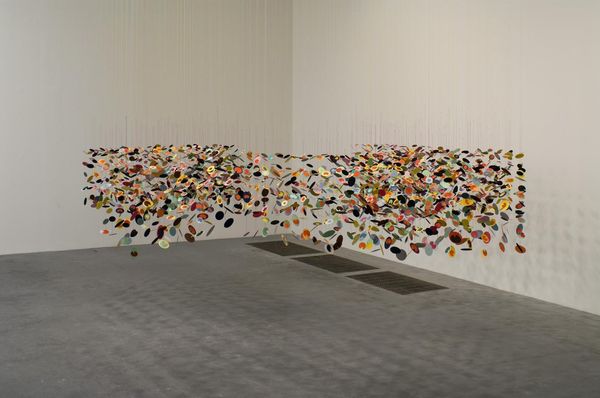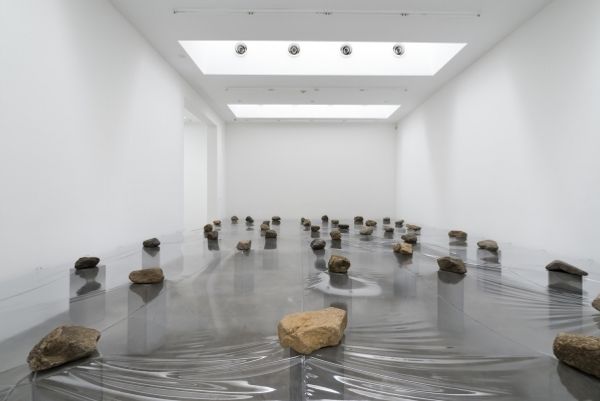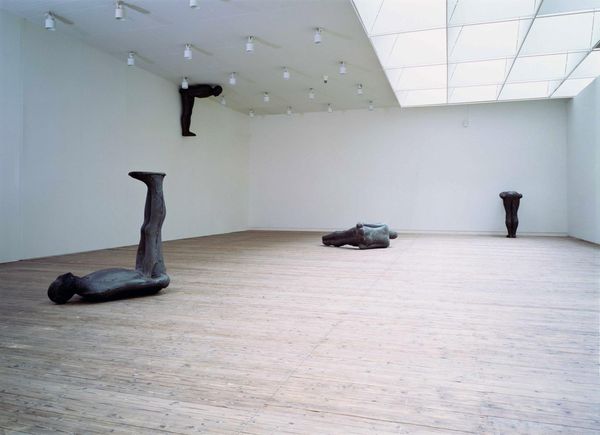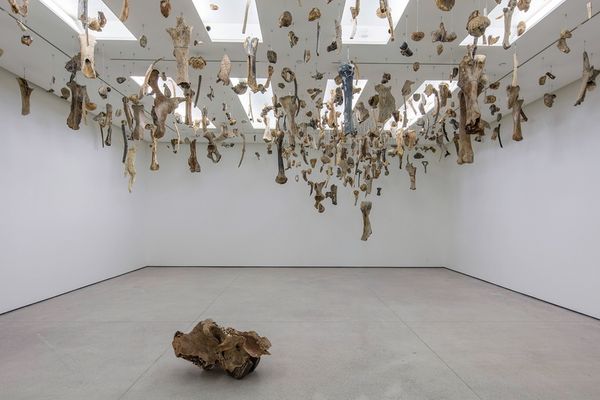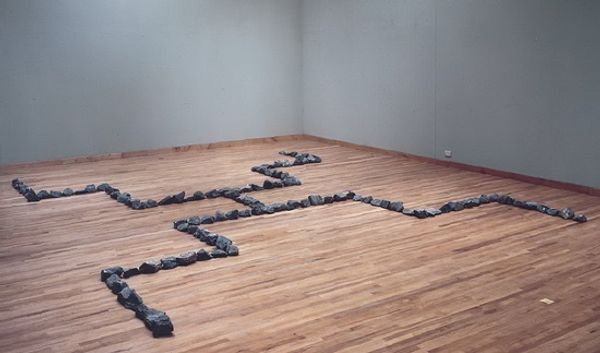
sculpture, site-specific, installation-art
#
contemporary
#
minimalism
#
geometric
#
sculpture
#
site-specific
#
installation-art
Copyright: Fusun Onur,Fair Use
Editor: Right, let's talk about Fusun Onur’s "Opus II - Fantasia," a site-specific installation from 2001. It fills this massive space with these delicate… are those clock hands? It’s such a simple gesture, but incredibly striking in this austere gallery. What draws your eye here? Curator: Well, look at the way Onur uses the readymade clock hands. This wasn’t some hand-crafted bronze, but mass-produced, functional objects, bought or salvaged, transformed by arrangement. How does the industrial, arguably banal, origin of the materials interact with the grand architecture of the gallery? Consider also her labor—meticulously placing each element to challenge high art ideals. Editor: That’s fascinating. It feels almost like she's repurposing time itself, or the *idea* of time. I initially focused on the aesthetic of minimalism, but I now also understand its making of the piece, how her labor is embedded in the layout of its materials. Does it relate to the place? Curator: Exactly. The site-specificity here isn't just about the gallery, but about engaging with a space possibly dedicated to production, like the industrialisation within Istanbul which greatly affected Turkish contemporary artists. We can reflect on not just space but Onur’s use of that space to discuss societal or commercial topics. It questions consumerism by repurposing discarded industrial components to redefine perceptions on ‘contemporary art.’ Editor: So it is almost a subtle critique of… maybe of value? It's so different than simply making some beautiful sculpture; it speaks to time, industry, and labour as its beauty. Curator: Indeed. By subverting our expectations, Onur compels us to question not only the object, but the context of art, as well as consumption, production, labor within it. Editor: I never thought about the implications behind sourcing mundane items. It's more involved and thoughtful than just throwing materials on the floor, but rather more to the process involved than solely the outcome. Thank you.
Comments
No comments
Be the first to comment and join the conversation on the ultimate creative platform.
